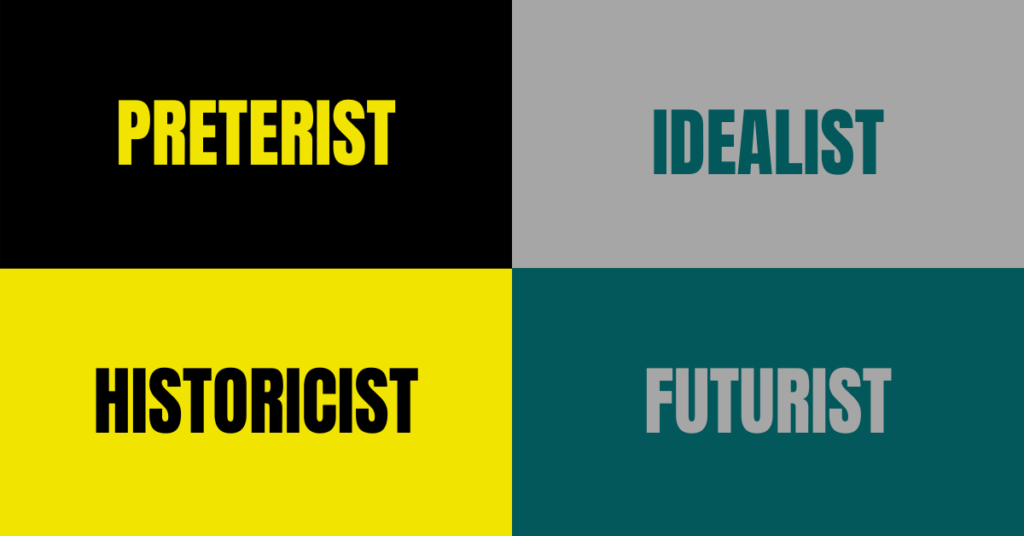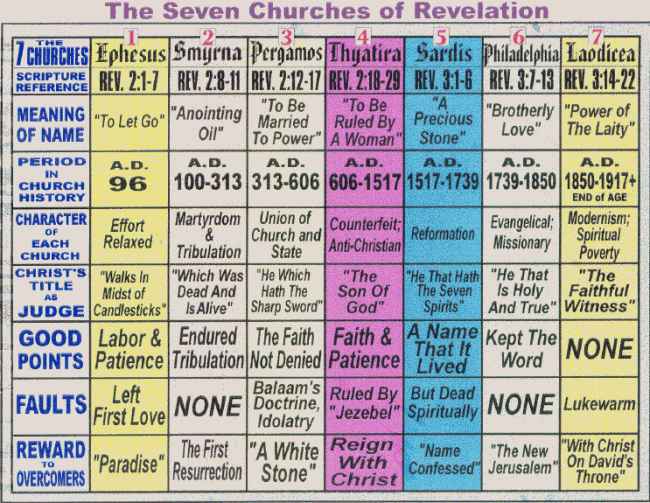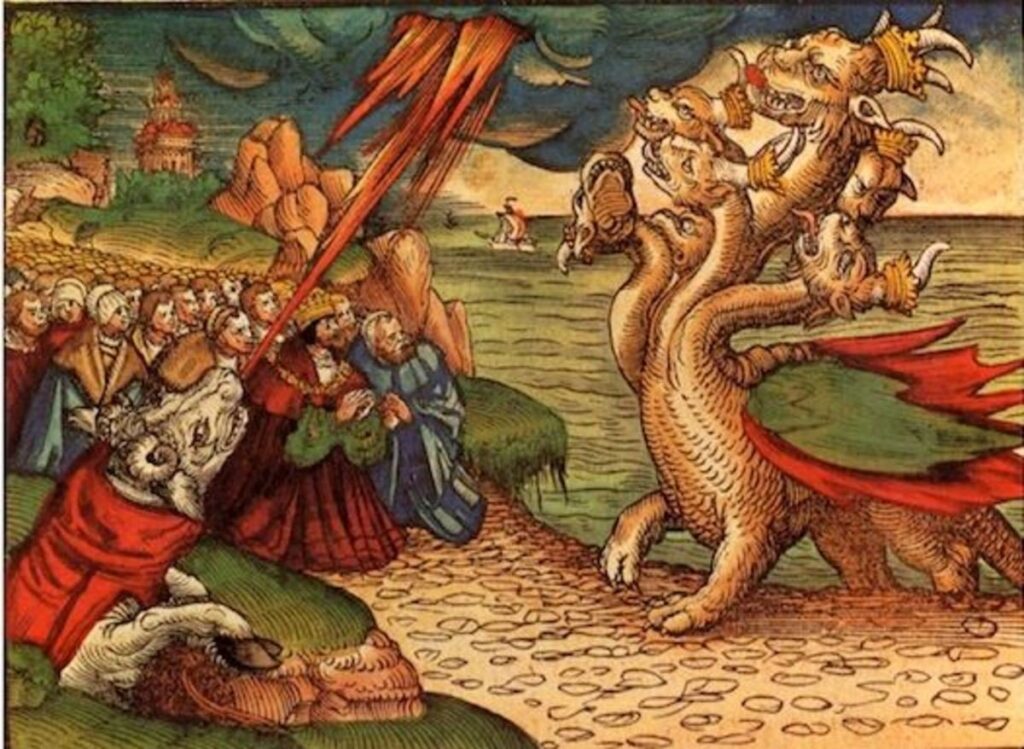When you begin reading Revelation, you’ll quickly notice that it is a very different kind of book to the rest of the Bible.

You will need to figure out this question :
What mode will I read Revelation?
In other words, how are you going to interpret this book? Because the answer to this question will completely change the way you interpret it to someone else.
Before we even take a deep dive into Revelation, I want to show you the 4 main modes of interpreting Revelation

Preterism

This teaches that everything in the book of Revelation has already happened. That is, for the original readers it had not yet happened, but it would have happened in their lifetime. So everything in the book is fufilled by about 100 AD at the latest.
The temple is destroyed, Jesus came back at some point around then. And the new kingdom has begun. There may be trickles of future things but most of it has been done and dusted.
It was originally for 7 churches and Jesus claimed to be coming back very quickly. So they take all of these passages as literal as they can.
Historicism

They teach that the Revelation is to teach a cycle of different ages that we will go through. They allegorise that the 7 churches are 7 types of ages for the church. We are probably in the last phase now, the Laodicean church, which is lukewarm.
So they differ to the Preterist in saying that there are still future things to be fulfilled, and they differ in giving it a literal reading of the text. They see it all as allegory.
Futurism

The opposite of Preterism. They are similar in giving it a more literal readiong of the text, but they believe Revelation is primarily talking about the last days of the last days. This means that they see this book not really written to the original audience, but those who will be just before Jesus comes back.
They will look at current affairs in the news and try and connect it to Revelation. That is, the Beast may be Donald Trump, China is the army in red, John saw tanks when he described grasshoppers.

Idealism
This one sees the book of Revelation primarily focusing on concepts rather than a chronological timeline. Things like numbers, landscapes, images convey a particular meaning. Also the idealist thinks of Revelation as more like a spiral of history, picking out what are the main concepts of what happens.
They don’t see Revelation 20 following Revelation 19. We are to see it more like different camera angles of the same concept.

For me, I see Idealism as the main way to interpret this book. There are clear things that have been predicted already, but there’s definitely some futuristic aspects. But we need to remember that the whole book is primarily about Jesus. And thus that should be the mode of how to interpet it.